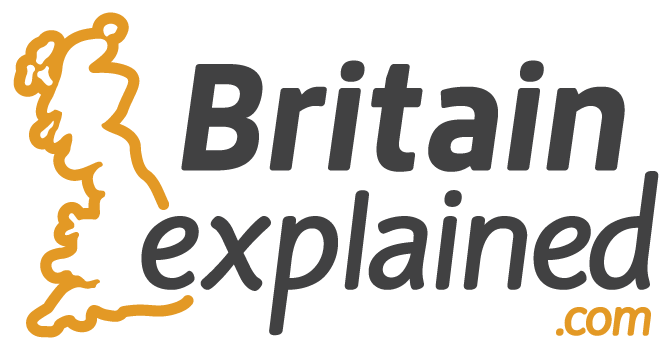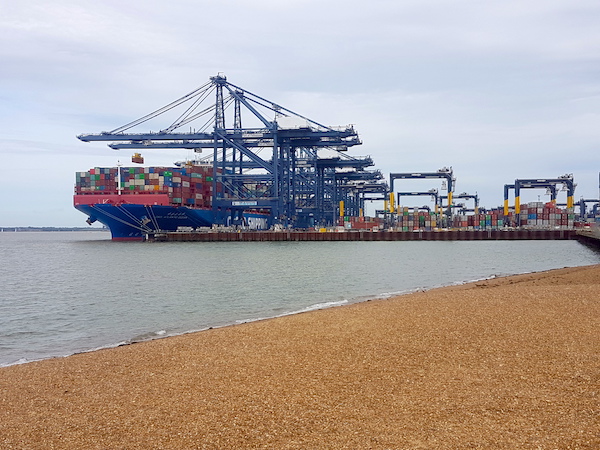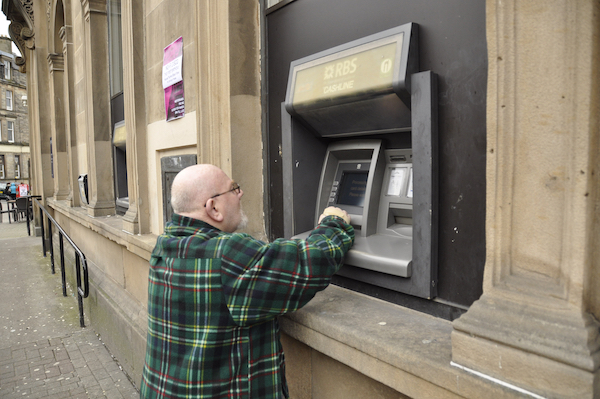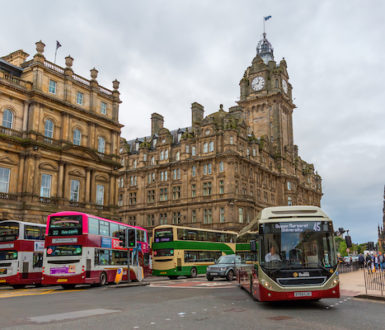This is an explanation of common finance and tax questions for people living in Britain. It is not advice, please consult a financial professional for more information.
Read more about tax
The UK government provides ‘benefits’ (state welfare payments) to people struggling with money, but usually only British Citizens and people with Indefinite Leave to Remain or Settled Status. The main benefit is called Universal Credit.
There are also other types of benefits, specific to certain situations. Be aware it is illegal to lie to claim benefits or to keep extra money if you have been paid too much.
- The independent organisation Citizens Advice can help you discover if you can claim anything.
- Read our blog post to see a list of other places that could give financial help.
- Go to the main government website to see the full range of help you might get.
The government’s Department for Work & Pensions can help explain Universal Credit and what you can claim.
Be aware you must not apply for Universal Credit if your visa says you have No Recourse to Public Funds. This is because it could affect your right to stay in the UK.
- Go to the government’s Universal Credit website.
There are emergency food banks in many communities to help people in crisis who cannot afford food.
You must first get a food bank voucher from a GP (local doctor), social worker, probation officer or school. Emergency food parcels are designed to last at least 3 days and you can usually only get 3 a year.
- See the Trussell Trust website for more information about emergency food, or search online for charities in your local area.
If your visa says ‘no recourse to public funds’ (also called ‘NRPF’) or you’re subject to immigration control, there is little government help available. If you apply for Universal Credit (the main social welfare payment), it could affect your right to stay in the UK.
- One place that might be able to offer advice is the Turn2Us website, a national charity that helps people during difficult times.
- There is also an online tool from the NRPF Network that might give you more information about what is available.
- In Scotland, the charity Positive Action in Housing might be able to help.
State welfare payments or tax credits are known as ‘public funds’. If you have No Recourse to Public Funds in your visa, it means you are not eligible for this kind of financial help.
However, some state welfare payments are not classified as ‘public funds’. These are:
- Contribution-based Jobseeker’s Allowance
- Guardian’s allowance
- Incapacity Benefit
- Contribution-based Employment and Support Allowance (ESA)
- Maternity allowance
- Retirement pension
- Statutory maternity pay
- Statutory sickness pay
- Widow’s benefit and bereavement benefit
- National Health Service (NHS) treatment
- State-funded schooling for children
Be aware that just because they are not classed as ‘public funds’, does not mean you can claim. There might be other reasons why you cannot apply (for example, the rules of your visa).
If you are Subject to Immigration Control (for example, you are in Britain on a visa), but your partner is not, it will affect which types of state welfare payments and tax credits you can try to claim. Payments that are for your partner personally (for example, Disability Living Allowance) should not be affected.
If you are subject to immigration control, it is important to get specialist advice before you apply for state welfare payments or tax credits. If you don’t, it might affect your permission to stay in the UK.
The independent organisation Citizens Advice has immigration specialists and offers free, confidential help.
There are many types of help for disabled people, or people with a long-term illness. If you have a specific disability or illness, there might also be a specific charity that can offer advice or help. Search online.
- You can find out more about financial help on the main government website.
Read more about financial help
Access to cash is becoming a problem in the UK because many ATMs and local banks have closed.
Most banks offer excellent services online so there is not always a need for a bank in a local area. However, it is a problem if you need to deposit cash or cheques, or if there are no ATMs.
- One option is the Post Office. It offers free basic banking services for its own accounts, as well as a range of high street banks. Services include depositing cheques and cash, withdrawing money and checking your balance. The Post Office website has more details about its banking service.
- You can get ‘cashback’ from supermarkets when you buy something. This means you pay an extra amount on your shopping, and get it back as cash. The maximum is usually £50.
It is possible to order foreign currency online and get it delivered to your home or pick it up in a convenient location. One provider is Travelex.
It is also possible to get UK sterling delivered to your home address in some circumstances. Royal Bank of Scotland is one bank that offers this service.
Anyone with money in a UK-authorised bank, building society or credit union is covered by the Financial Services Compensation Scheme (FSCS). This means that if the bank fails, the FSCS will automatically make sure you get your money back, usually within 7 days (up to £85,000 per person).
There are some conditions, however:
- Each person is only covered up to £85,000 per bank – not per bank account. So if you have a lot of money, you should spread it across several banks.
- Be aware that some banks trade under several names. For example, the Co-operative Bank also trades as Britannia and Smile, but these all count as 1 bank.
- The maximum that can be claimed by people who have a joint account is £85,000 each (so £170,000 in total).
Check that the bank you want to use is regulated by the Financial Conduct Authority (FCA) because some internet-only banks are not regulated. Go to the FCA website to see a list of registered banks.
If you have a very large amount of money, NS&I (National Savings & Investments) is backed by the UK government and will guarantee large amounts of money. Its Direct Saver account will take amounts up to £2 million. Go to the NSI website.
If you need someone to look after your money for you (because you are abroad or in case of illness), you can ask an ‘attorney’ to do it for you. An ‘attorney’ is a trusted person who acts for you. It could be a lawyer, or it could be a relative or friend.
You need a special document, called a Power of Attorney. There are 2 types for financial matters:
- ‘Ordinary Power of Attorney’. This is a good option for people who need someone else to manage their UK money for them for a short time (for example, because they are abroad). To set up an Ordinary Power of Attorney, speak to a solicitor or use go to Citizens Advice. It can be effective immediately, if needed. Be aware that if your mental state means you cannot make your own decisions, the Ordinary Power of Attorney will not be valid. In Scotland, it is called a General Power of Attorney.
- ‘Lasting Power of Attorney for Property and Financial Affairs’. This is a more formal and longer-lasting document. It means someone else can make decisions about your finances and property, for example choosing to sell your house. You can choose if the Power of Attorney will be used straight away, or only if you cannot make your own decisions (for example if you get dementia or have a serious accident). To set up a Lasting Power of Attorney, go to the Lasting Power of Attorney website.
For most people, there is a charge of £82. After you and your attorneys have signed your document, you must register it with the Office of the Public Guardian. The Power of Attorney will not be valid if you do not. Be aware that registration could take about 4 months. Read more about Power of Attorney on the main government website.
People in Scotland need to make a ‘Continuing Power of Attorney’. Go to the Public Guardian Scotland website.
- The Citizens Advice website has general information about Powers of Attorney.
Action Fraud is the place to report fraud and cyber crime in England and Wales. You can report at any time of day using its online tool. Go to the Action Fraud website.
For fraud/cyber crime in Scotland, call 101.
For an emergency, call 999.
If you are homeless or don’t have a home address, it might still be possible to get a bank account. The bank HSBC offers a No Fixed Address service for people getting support via certain charities, including the homelessness and housing charity Shelter.
- Read more about the HSBC No Fixed Address service on the HSBC website.
If you have a poor credit score (how financial institutions judge your likelihood to repay debt), it can be difficult to get a bank account. This might happen because of debt, but it can also be because you have just arrived in the UK.
It is still possible to get a ‘basic bank account’. This type of account doesn’t offer any type of credit (such as overdrafts, cheque books or credit cards), but it does let you carry out basic banking with a debit card and you can also set up direct debits and standing orders.
The MoneySavingExpert website has a list of banks offering basic bank accounts that might be useful.
If you don’t have a bank account, it is possible to pay bills or buy things online using a postal order. It works like a cheque, except you don’t need a bank account. Instead, you buy the postal order from the Post Office and send it as your payment. There is a small charge for each postal order. Read more on the Post Office website.
If you don’t have a UK bank account but want to use a contactless debit card, consider getting a Travel Money Card. You can transfer UK Sterling onto the card either from an overseas bank account or as cash, which you can then spend using the card. The Post Office offers a Travel Money card or you can search for other providers online.
There are several ways to get money sent to the UK. Two examples are Western Union and PayPal.
- With Western Union you can receive money in cash from a Western Union outlet. Go to the Western Union website.
- With PayPal you can send it to an email address and use it from an online PayPal account, but this would only work for online shopping or bill paying. Not everywhere will accept it. Go to the PayPal website.
You will need to ask your UK bank for the IBAN (international bank account number) and SWIFT code (or SWIFTBIC as it is sometimes called) so the overseas bank knows where to send the money.
You can find the IBAN on your UK bank statement, or ask your bank. You should be able to find the SWIFT code on your UK bank’s website. The overseas bank will probably charge a fee to send money to the UK.
If you want to avoid paying a banking fee when sending money abroad or receiving it from abroad, there are other options. Services such as Western Union, TransferWise and PayPal are alternative ways to send money. However, it makes sense to compare the exchange rates and fees to those from your bank before making your choice, especially if you are moving a large amount of money.
Go to the websites to read more:
AER means Annual Equivalent Rate. AER is used when saving money. It will tell you the amount of interest (before tax) you would get on your money over 1 year. This can help you choose the best place for your savings.
There are many different ways to save or invest money in Britain. The Money Advice Service gives information about different types of savings account, including special accounts for school fees, children or which are Sharia-compliant. Go to the Money Advice Service website to read more.
NS&I is National Savings and Investments. With NS&I you are lending to the UK government. The interest rates might be lower than for some other products, but your money is 100% secure. Go to the NSI website to find out more.
An ISA is tax-free savings system promoted by the government. There are different types of ISA. For example, some ISAs are designed to help people save money to buy a home, or for their retirement. Others are just for children.
There is a limit on how much you can pay into an ISA each tax year.
Adult ISAs are available to most UK residents aged over 16. You need a National Insurance number.
- Read more about ISAs on the Which? website, an independent organisation.
You might be able to apply for compensation via the Financial Services Compensation Scheme. It covers debt management companies, insurance companies, pension providers, endowment schemes and mortgage/insurance advisors.
- For more information and to apply for compensation, see the FSCS website.
The LSE is the London Stock Exchange.
The FTSE (known as the ‘footsie’) is the name used for the Financial Times Stock Exchange Group. It is an independent organization that creates indexes for financial markets.
The FTSE 100 is Europe’s most popular stock market index. It tracks the 100 most valuable companies (assessed by stock value and liquidity) listed on the London Stock Exchange. The FTSE 100 is often used to judge the prosperity of the UK.
The FTSE 250 is another popular index. It is made of the 250 companies listed after the FTSE 100. These companies often have a less international focus than those in the FTSE 100.
The AIM is the Alternative Investment Market. It is an international market run by the London Stock Exchange. It is designed to help smaller and growing companies raise money from investors.
An IPO is an Intial Public Offering. This is the time when a company first offers shares for the public to buy.
‘Blue chip’ is a phrase used to describe well-known companies with a record of reliable share growth.
The stock market is often described as being ‘bearish’ or ‘bullish’. A Bull Market means the economy is good and investors are optimistic that their stocks will rise in value. In a Bear Market, there is pessimism and a bad economy or a recession.






